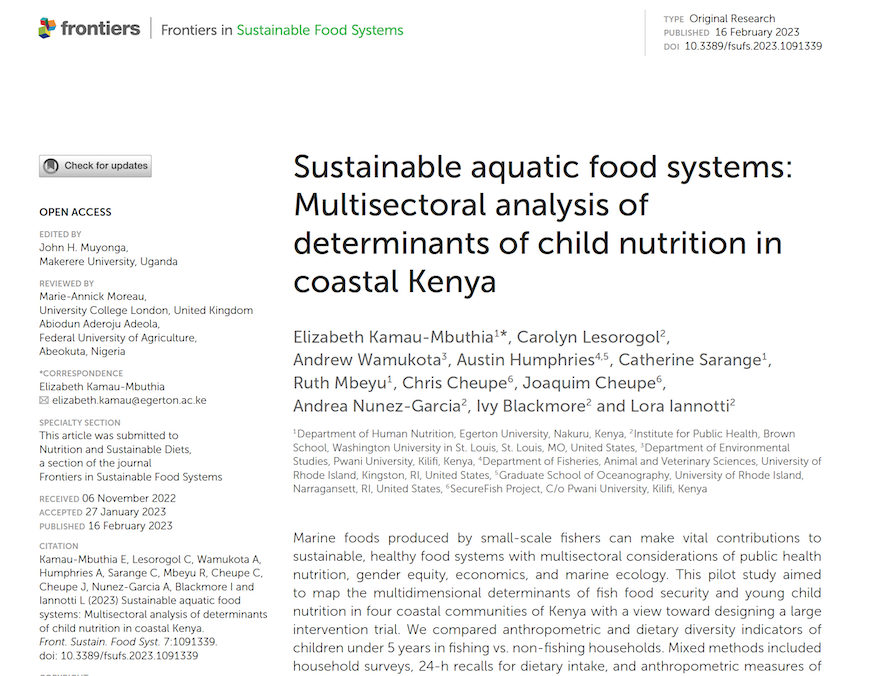
Authors: Elizabeth Kamau-Mbuthia, Carolyn Lesorogol, Andrew Wamukota, Austin Humphries, Catherine Sarange, Ruth Mbeyu, Chris Cheupe, Joaquim Cheupe, Andrea Nunez-Garcia, Ivy Blackmore, and Lora Iannotti
Abstract
Marine foods produced by small-scale fishers can make vital contributions to sustainable, healthy food systems with multisectoral considerations of public health nutrition, gender equity, economics, and marine ecology. This pilot study aimed to map the multidimensional determinants of fish food security and young child nutrition in four coastal communities of Kenya with a view toward designing a large intervention trial. We compared anthropometric and dietary diversity indicators of children under 5 years in fishing vs. non-fishing households. Mixed methods included household surveys, 24-h recalls for dietary intake, and anthropometric measures of children. Child dietary diversity score (CDDS) and height-for-age Z (HAZ) were primary outcomes tested in ordinary least square regression modeling. Stunting was widely prevalent (20.2%), as were morbidities for acute diarrhea (29.0%) and fever (46.5%), with no statistically significant differences in fishing compared to non-fishing households. High proportions of children showed nutrient intake inadequacies for vitamins A, C, and E, iron and zinc; <50% met requirements for all nutrients except protein, which was derived primarily from plant-based foods. Regression modeling showed children living in fishing households were associated with lower CDDS. Maternal education, maternal body mass index (BMI), and household livelihood diversity were positively associated with both CDDS and HAZ, while child morbidities and north coast (of Mombasa) residence showed negative associations. Our findings highlight nutritional vulnerabilities within a coastal food system of Kenya and the need to involve multiple sectors—education, environment, health, finance, communications, and governance and policy—in deriving solutions.
Read the full publication at https://doi.org/10.3389/fsufs.2023.1091339.
Published September 22, 2023

